Looking back on decades of music ministry in The Salvation Army, Major Len Ballantine admits he didn’t see music as a potential career when he was a young man.
“When you grow up in The Salvation Army, all of your music making is your gift to God, so I never had the sense of, I’m going to be a professional musician one day,” he says.
It was General Arnold Brown, then a commissioner leading the Canada and Bermuda Territory, who gave him his first professional musical role with the Army.
“He found out that I was wrapping War Crys at the Triumph Press in Oakville, Ont., and he said, ‘This will never do. Let’s give this guy something in music,’ ” Major Ballantine shares.
Major Ballantine took the role of national bandmaster in 1975 and retired as leader of the Canadian Staff Songsters last fall, leaving a global legacy of music making—a gift to God and the Army world.
Surrounded by Music
As a young boy in Windsor, Ont., Major Ballantine’s home was filled with music.
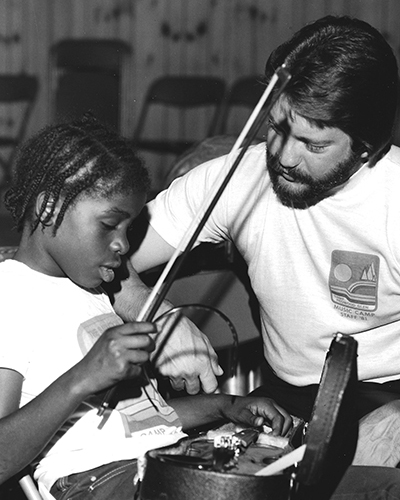
“My parents loved classical music and they were lifelong Salvationists, so singing and brass music were very much a part of our culture,” he shares. “My father, who was the bandmaster at Windsor Citadel, loved opera, symphonies and piano music. When you surround a child with that amount of music making, it really shapes their life.”
His parents were also a powerful influence on his faith, guiding him as he gave his life to Christ at seven years old.
“I remember going to the mercy seat one Sunday evening, and my mother knelt with me there,” Major Ballantine shares. “And I was suddenly aware of the conflict of good and evil, I was aware of sin in my own little life, and I wept. My father took me to his bandmaster’s office, and we had a prayer there. I consider that my salvation experience, and I’ve always been a person of faith, no matter what was going on in my life.”
As a young adult, Major Ballantine attended the University of Toronto with a scholarship in piano performance. But after he joined the university’s concert choir, under the direction of esteemed conductor Lloyd Bradshaw, the course of his life was forever changed.
“The power that this man had, when he was conducting, to draw the best out of people,” he recalls. “I sat there and said to myself, ‘I want to do that.’ ”
In the end, he switched from piano performance to composition. “That gave me the nuts and bolts, the harmony, the counterpoint—all of that nerdy analytical stuff that makes you understand what makes music what it is,” Major Ballantine says. “That background in composition served me really well later on.”
Special Efforts
Before he came to the Army’s music department, Major Ballantine had many different musical roles—conducting choirs, playing for ballet classes, working as an organist at various churches, even writing jingles.
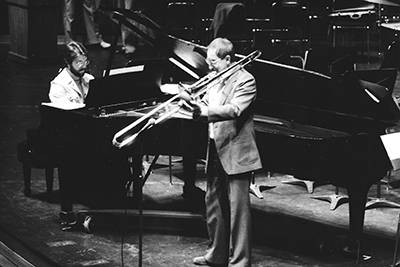
“It gave me a really rich and diverse background, so I was flexible,” he reflects. “I wasn’t just interested in one kind of music. I loved it all—contemporary, jazz, pop.
“I gave my heart to everything that came along. It was so interesting.”
In his role as national bandmaster, Major Ballantine brought music to Salvationists across the territory.
One of his most significant contributions in those early years was through his involvement with the territory’s special efforts department, creating music programs for television with Ian Adnams.
“It was almost clandestine because it wasn’t normal for us to be involved in television work,” he says. “But I had a boss that would allow me to do things. So, for several years running, we produced a half-hour television show that went out across Canada during Christmastime when stations are looking for free material that they can broadcast. And the Army got wonderful publicity because of it.”
A Great Journey
Major Ballantine became national music secretary in 1984, a position he held until he and his wife, Heather, who was working for the Army in social services, entered training college in 1988.
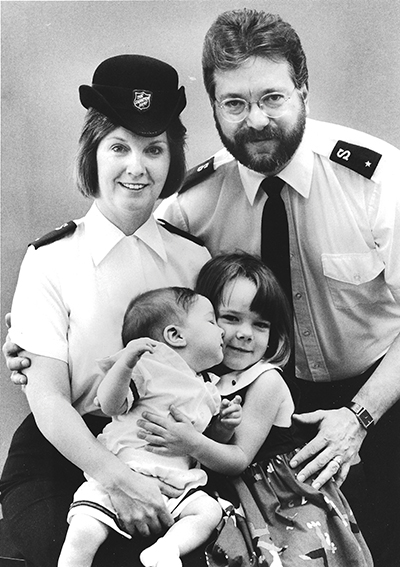
“Always the call,” he says. “When you’re a child growing up in The Salvation Army, you are aware of the call of God on your life.”
Then Lieutenant Ballantine was an officer for just two years when he was asked to lead the International Staff Songsters (ISS) in England.
“It was a complete surprise,” Major Ballantine says. “I remember the day we got the call about the appointment and I began to weep because here was a choir that one could only dream to aspire to lead.”
He was just the second leader of the ISS, which had been established in 1980 by Lt-Colonel Norman Bearcroft.
“I was somebody that had a lot of experience behind me, and yet it was fearful going,” he admits. “I was following the founding director who had written yards and yards of music for this group. So, I went with fear and trepidation. But it was exciting and humbling, and we embraced it.”
During his six years with the ISS, Major Ballantine travelled the British Isles, Europe, Australia, New Zealand and the United States, with a focus on choral clinics and worship workshops. He also recorded seven albums with the group.
But he considers his primary contribution to be “bringing to them something of the modern, seeing people who had been accustomed to the traditional Salvation Army music of the time, open up to contemporary modes of expression,” he says. “To watch that transition happen was really exciting.”
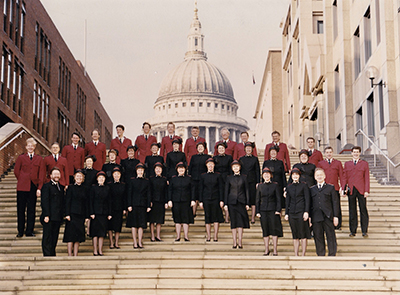
“His work with the ISS broke new ground and paved the way for a creative outpouring,” says Andrew Blyth, head of music editorial in the United Kingdom and Ireland Territory. “As an aspiring writer and admirer of vocal music, I was captivated by Len’s ability to communicate the gospel and write songs that struck right into the heart of the gospel message.”
“There is no doubt that Len’s tenure as the conductor of the ISS represents a golden era for the group,” adds Stephen Cobb, director of music and creative arts for the United Kingdom and Ireland Territory and conductor of the International Staff Band. “He is an outstanding musician, communicator and preacher whose gifts were so powerfully used with his ministry with the ISS.”
Looking back now, Major Ballantine says six years with the ISS was too short. “They were wonderful musicians and people to be with. It was a great journey.”
Lighting a Fire
Coming back to Canada in 1998, the Ballantines were appointed to Westminster Park in London, Ont.—a considerable change from the ISS, but an appointment they accepted with enthusiasm.
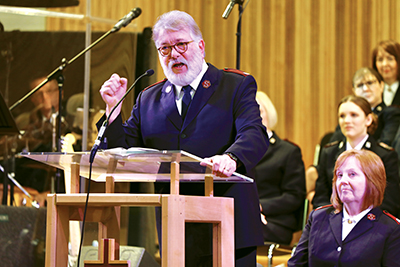
“When we left England, we brought something with us—the experience of going to Holy Trinity Brompton in London and doing the Alpha leaders course,” Major Ballantine explains. “We came back from England wanting to put Alpha to work and wanting to minister to people. Alpha changed us, and it changed the corps.”
Majors Ballantine officially retired in 2015, but he did not stay retired for long. For the next year, he was working behind the scenes to get a new musical group up and running: the Canadian Staff Songsters (CSS).
“I think there has been a need for a staff songster group in our territory for a long, long time,” he says. “When the CSS started in 2016, we were mindful of the need to light the fire of singing under our territory, to light the excitement of what it means to sing the sung gospel.”
To that end, the CSS would aim to encourage and inspire local Salvationists wherever the group went, and raise up leaders from within the CSS who would have a positive influence on choral ministry at their own corps.
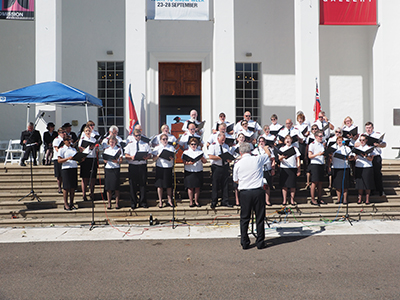
Cathie Koehnen, who has just taken on the role of songster leader for the CSS, is one example of the group’s leadership development, as well as Major Ballantine’s own impact as a mentor. His influence stretches all the way back to when Koehnen, then 14, was at Beaver Creek Camp in Saskatchewan and he was the musical guest.
“That changed my life because he brought music that I wasn’t used to hearing in The Salvation Army. It was more contemporary,” she says. “That’s when I caught the bug and became even more involved with music in the Army.”
Koehnen sang with Major Ballantine when he was the leader of the Covenant group at Toronto’s Etobicoke Temple in the 1980s, and worked with him in various capacities over the years leading up to the CSS, when he chose her to be deputy songster leader.
“He has always encouraged me and supported me,” she says. “I can’t imagine my musical life today without his influence and impact.”
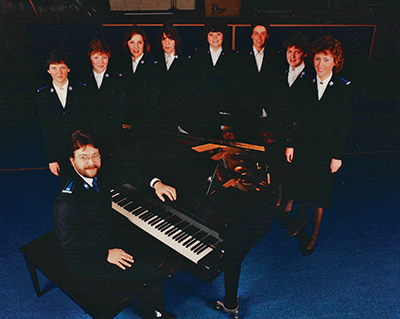
Looking back on his time leading the CSS, Major Ballantine says one highlight for him was performing on the streets of downtown Calgary during the Stampede in 2018.
“It felt like we were doing something which could not be done at any other time,” he says. “We were releasing into the air the praise of Jesus and people stopped and listened, when on an ordinary day they wouldn’t have. It was not unlike Victorian England when the Army went out on the streets and did things to attract attention.”
The Heart of Worship
Composing music since he was a young child, Major Ballantine is as well regarded for his compositions as he is for his conducting.
“For a long time, I have affectionately called Len ‘Maestro,’ which is a warm and sincere nod to his musical and creative genius,” says Lt-Colonel John Murray, territorial secretary for communications and executive officer for the CSS. “He is a brilliant and thoughtful composer whose compositions stir the inner soul of the listener to the heights of worship.”
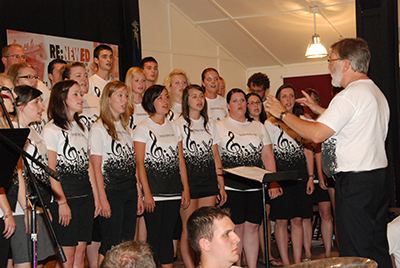
“When I’m composing, above all, I have to imagine where it’s going to be used and what it has to accomplish,” Major Ballantine says. “And then you pray into it for inspiration, for the Spirit of God.
“If it’s hard work, I throw it in the basket,” he adds. “It’s not ready to sit on the page yet. It’s got to have some breath behind it.”
When asked what his favourite composition is, Major Ballantine admits he usually says the last one he wrote (“If I don’t love it, then it’s not finished”). But if pressed to choose one, he says it’s Whom Have I in Heaven, But You?, which is based on Psalms 73 and 74.
“It goes on a little harmonic wandering—it doesn’t stay in the same key all the time,” Major Ballantine explains, “and I think it suggests some of life’s journey—turmoil, change, drought, storm, but it comes home again. ‘Whom have I in heaven, but you?’ ”
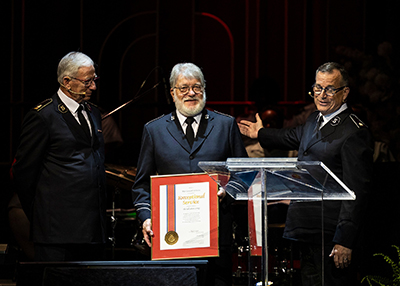
Reflecting on his life of ministry, Major Ballantine says the most important thing for any musician, any worshipper, to remember is that “it’s all about you, Jesus,” quoting Matt Redman’s The Heart of Worship.
“When the music is not there, what’s left?” he asks. “It should be our hearts crying out to God—our prayers through music, our aspirations through music. That’s why the staff songsters are relevant; they’re bringing Scripture alive.
“It can’t ever be perfunctory. It comes from the heart.”
Listen to the full interview with Major Ballantine on the Salvationist podcast:




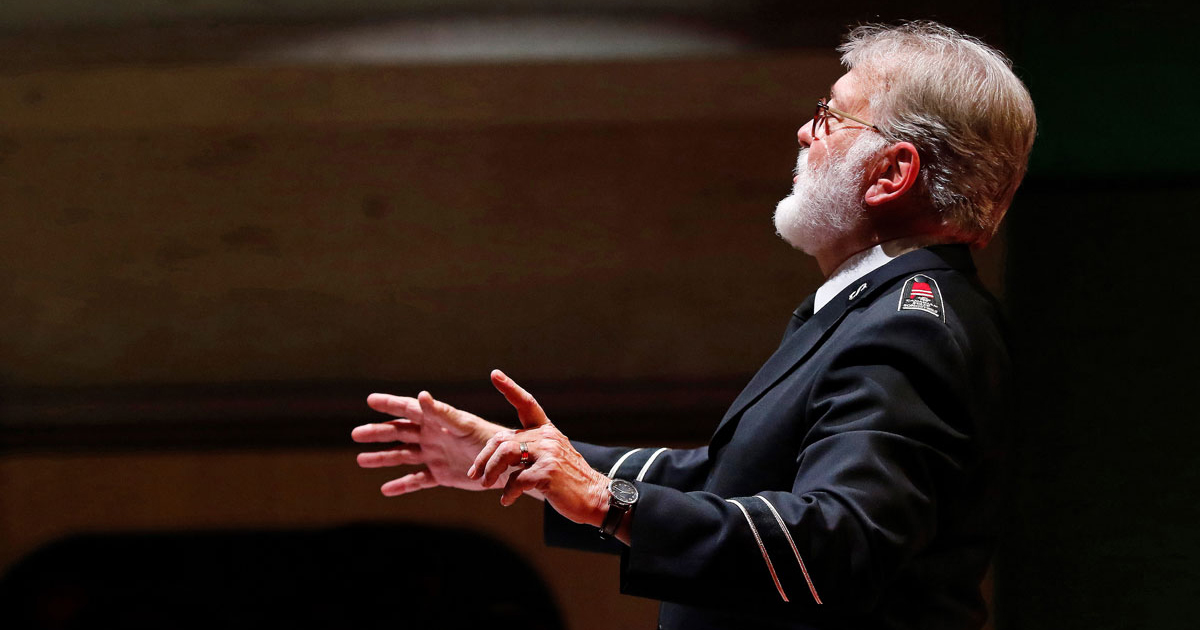


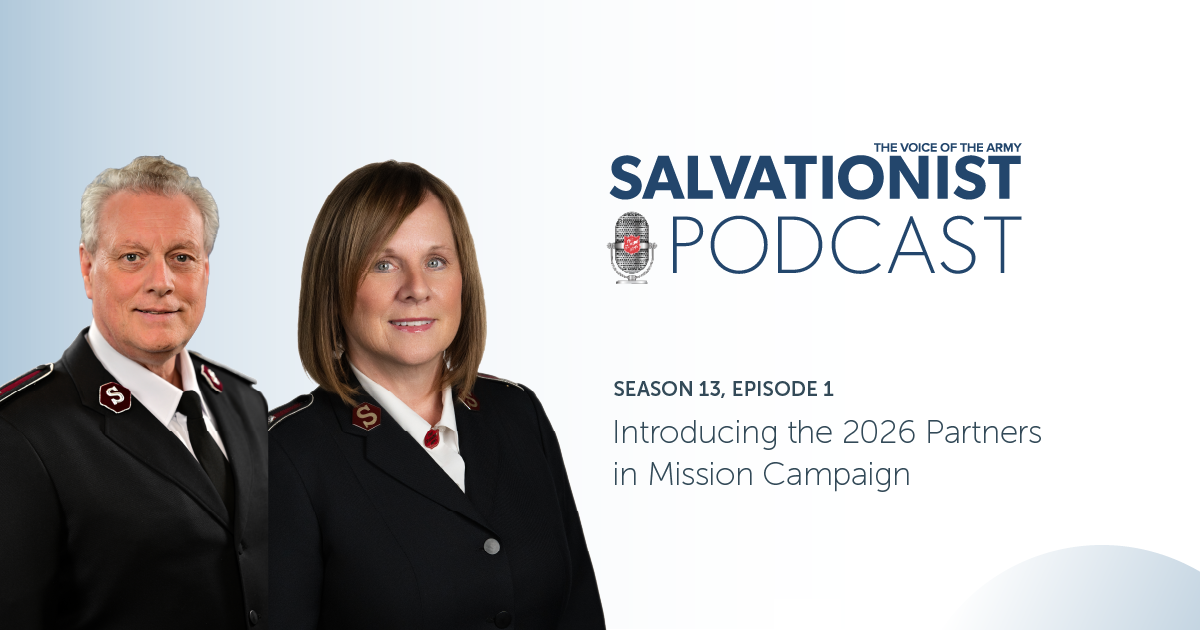


Leave a Comment